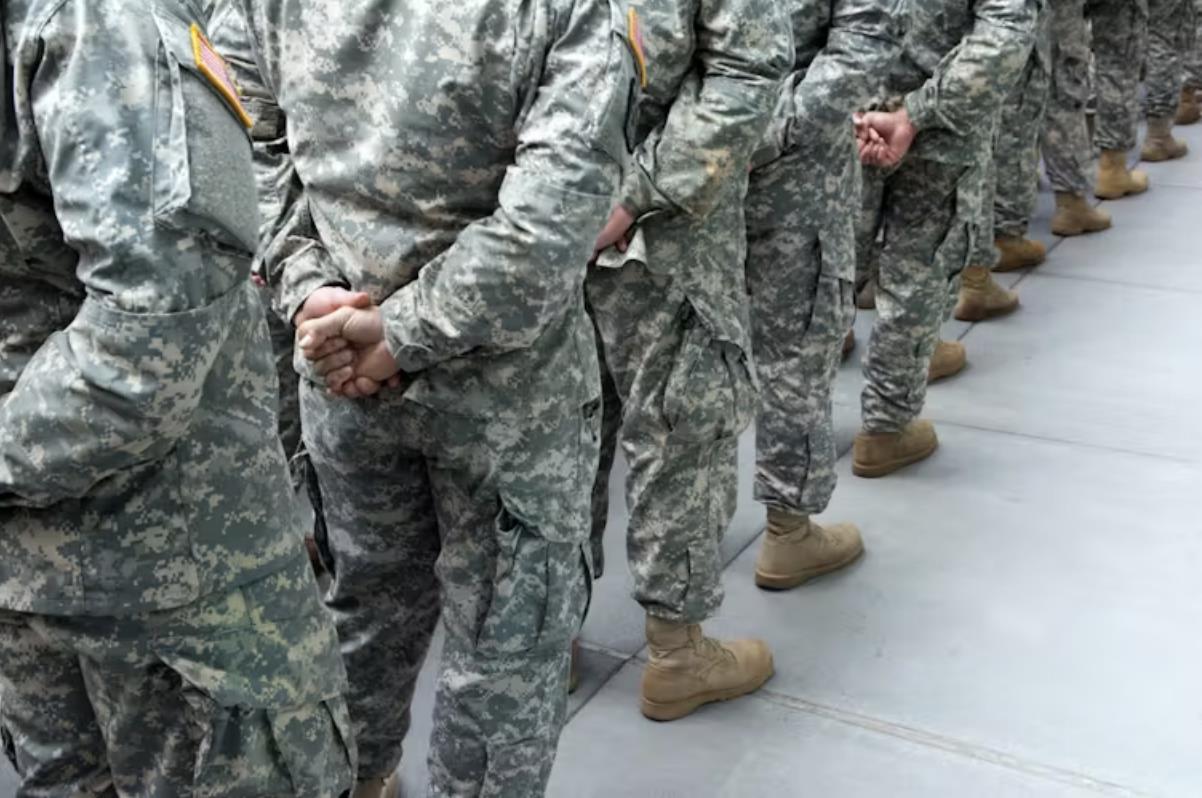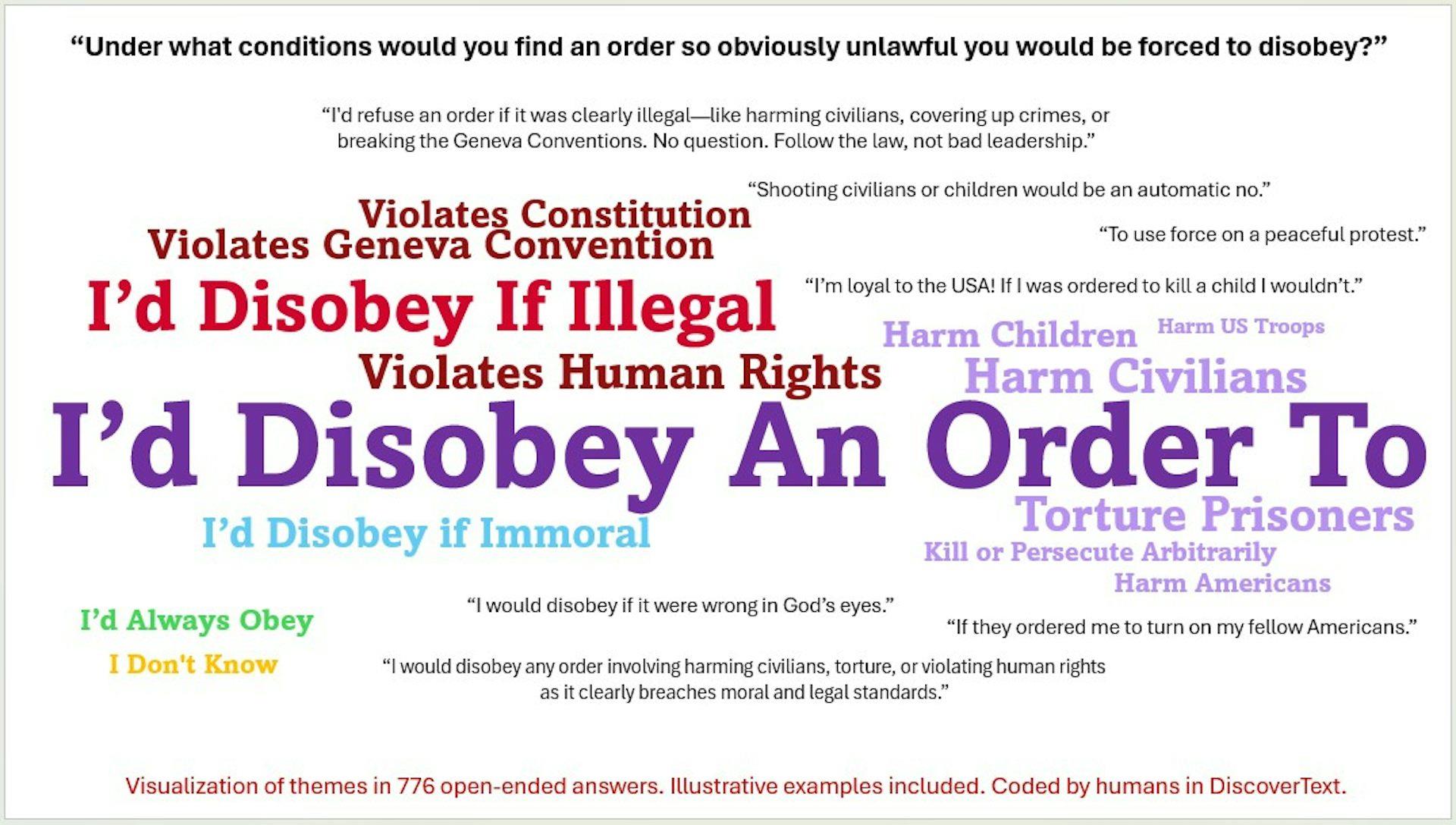
When US Troops Refuse Illegal Commands
The lawmakers have all served either in the military or the intelligence community. Their message sparked a furious response on social media from President Donald Trump, who called the legislators' action“seditious behavior, punishable by death.”
One of the lawmakers, Senator Elissa Slotkin, told The New York Times that she had heard from troops currently serving that they were worried about their own liability in actions such as the ones in the Caribbean.
This is not the first time Trump has put members of the military in situations whose legality has been questioned. But a large percentage of service members understand their duty to follow the law in such a difficult moment.
We are scholars of international relations and international law. We conducted survey research at the University of Massachusetts Amherst's Human Security Lab and discovered that many service members do understand the distinction between legal and illegal orders, the duty to disobey certain orders, and when they should do so.
The ethical dilemmaWith his August 11, 2025, announcement that he was sending the National Guard – along with federal law enforcement – into Washington, DC to fight crime, Trump edged US troops closer to the kind of military-civilian confrontations that can cross ethical and legal lines.
Indeed, since Trump returned to office, many of his actions have alarmed international human rights observers. His administration has deported immigrants without due process, held detainees in inhumane conditions, threatened the forcible removal of Palestinians from the Gaza Strip and deployed both the National Guard and federal military troops to Los Angeles, Portland, Oregon, Chicago and other cities to quell largely peaceful protests or enforce immigration laws.
When a sitting commander in chief authorizes acts like these, which many assert are clear violations of the law, men and women in uniform face an ethical dilemma: How should they respond to an order they believe is illegal?
The question may already be affecting troop morale.“The moral injuries of this operation, I think, will be enduring,” a National Guard member who had been deployed to quell public unrest over immigration arrests in Los Angeles told The New York Times.“This is not what the military of our country was designed to do, at all.”
Troops who are ordered to do something illegal are put in a bind – so much so that some argue that troops themselves are harmed when given such orders. They are not trained in legal nuances, and they are conditioned to obey.

Legal Disclaimer:
MENAFN provides the
information “as is” without warranty of any kind. We do not accept
any responsibility or liability for the accuracy, content, images,
videos, licenses, completeness, legality, or reliability of the information
contained in this article. If you have any complaints or copyright
issues related to this article, kindly contact the provider above.
























Comments
No comment